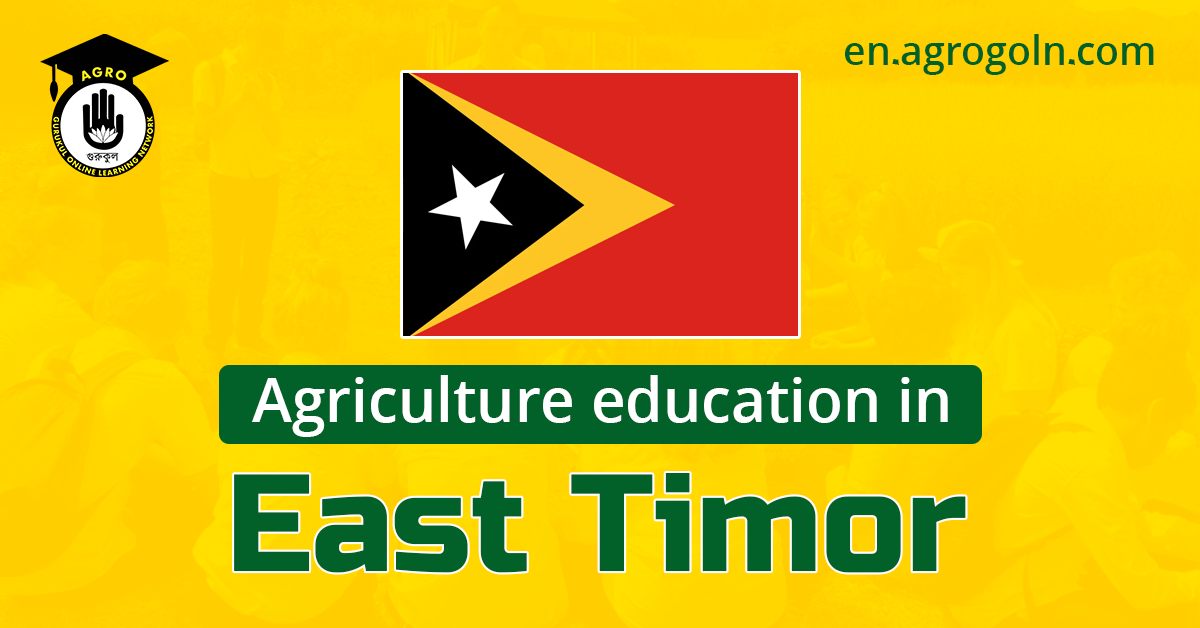East Timor, or Timor-Leste as it’s officially known, is a small nation situated in Southeast Asia, sharing half of the Timor island with Indonesia. Emerging from a tumultuous history of colonialism and conflict, Timor-Leste became an independent nation in 2002. The country has an agrarian economy with around 80% of its population relying directly on subsistence farming. As such, agricultural education is crucial not only for improving the livelihoods of its residents but also for bolstering the nation’s economic development.
Historical Context
The Portuguese colonized Timor-Leste for several centuries, and its influence can still be seen in many facets of the country. However, their investment in developing the agricultural sector or education was limited. This lack of attention to agricultural education and practices left the nation unprepared for modern farming techniques.
During the Indonesian occupation from 1975 to 1999, much of the country’s infrastructure, including educational facilities, were destroyed. This had a lasting impact on all sectors of education, including agricultural training.
Upon gaining independence, Timor-Leste faced a colossal challenge in rebuilding its educational system. With agriculture being a primary means of livelihood, the country recognized the need to prioritize agricultural education.
Challenges in Agricultural Education
- Infrastructure and Resources: The destruction left by years of conflict meant that Timor-Leste had to build its educational infrastructure from the ground up. This included building schools, training teachers, and developing a curriculum.
- Cultural Practices: Much of the farming in Timor-Leste is done using traditional methods. While these methods have sustained the population for centuries, they might not be the most efficient or sustainable in the face of modern challenges such as climate change.
- Economic Constraints: As one of the poorest nations in Asia, funding for educational reforms, including agricultural education, is limited.
- Lack of Trained Educators: The need for educators who are well-versed in modern agricultural practices is pressing. However, there’s a lack of trained professionals in the country.
Steps Towards Improvement
- International Collaboration: Post-independence, Timor-Leste has collaborated with various international bodies, including the United Nations and NGOs, to improve its agricultural practices. Many international organizations have provided funding, resources, and expertise to build the nation’s agricultural education infrastructure.
- Formal Education: Schools have started to include agricultural education in their curriculums. This ensures that from a young age, children are taught modern farming techniques, integrated with traditional knowledge.
- Vocational Training: Recognizing that not all farming knowledge can come from formal schooling, the government and NGOs have established vocational training centers. These centers offer courses in modern farming techniques, animal husbandry, and sustainable agriculture.
- Community Engagement: The integration of traditional knowledge with modern techniques is crucial. Hence, there’s a focus on community-based training where elders and experienced farmers collaborate with trained educators to provide a holistic agricultural education.
- Research and Development: Investing in agricultural research is pivotal. Timor-Leste, with assistance from international partners, has initiated research on crops suitable for its climate, pest management, and sustainable farming practices.
- Extension Services: These services aim to provide farmers with the latest information on agricultural practices, market trends, and technologies. Trained professionals visit villages and communities, offering workshops and hands-on training sessions.
Successes and Outcomes
Over the years, these efforts have started showing results:
- Increased Crop Yield: The introduction of modern farming techniques and improved seed quality has resulted in higher crop yields, ensuring food security and surplus produce that can be sold in markets.
- Diversification: Earlier, the primary crops were maize and rice. Now, with better knowledge and training, farmers are diversifying into crops like coffee, vegetables, and fruits, opening up new economic avenues.
- Sustainability: With training in sustainable farming methods, there’s a lesser impact on the environment. Practices like crop rotation, organic farming, and water conservation are becoming more prevalent.
- Economic Improvement: As farming practices improve, it leads to better economic prospects for farmers, leading to an overall upliftment of the rural economy.
The Way Forward
While Timor-Leste has made significant progress in agricultural education, there’s still a long road ahead. Continued investment in education, research, and infrastructure is vital. The country also needs to look at global best practices, adapt them to their local context, and ensure that every farmer, whether young or old, has access to the best possible agricultural education.
In conclusion, agricultural education in Timor-Leste is not just about farming; it’s about nation-building. By empowering its majority agrarian population with knowledge and skills, Timor-Leste is ensuring a sustainable, prosperous, and resilient future for its people.
